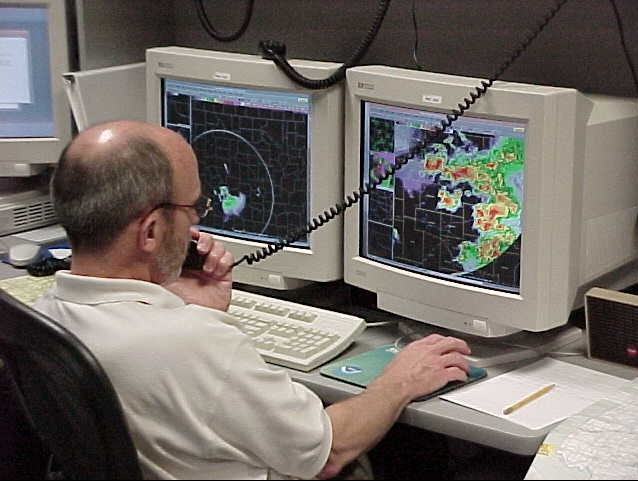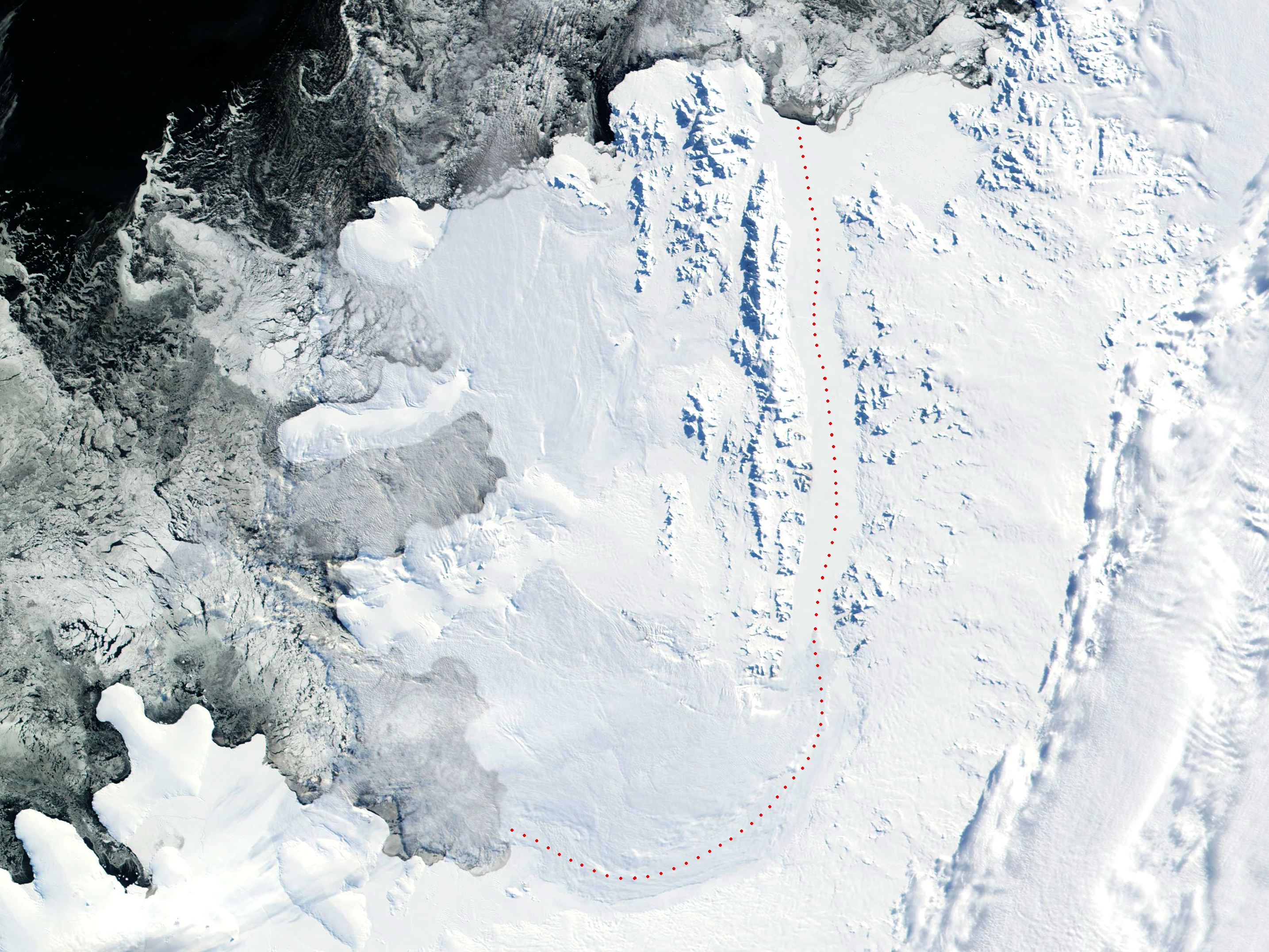|
Schokalsky Bay
Schokalsky Bay () is the easternmost bay of Alexander Island, Antarctica, 9 nautical miles (17 km) wide at its entrance and indenting 6 nautical miles (11 km) lying between Mount Calais and Cape Brown along the east coast of Alexander Island whilst adjacent to the George VI Ice Shelf in George VI Sound. Hampton Glacier discharges tremendous amounts of ice into the head of Schokalsky Bay at a steep gradient causing the ice there to be extremely broken and irregular, and discourages use of this bay and glacier as an inland sledging route onto northeast Alexander Island. The bay was first sighted from a distance in 1909 and roughly charted by the French Antarctic Expedition under Charcot who, thinking it to be a strait, gave the name " Detroit Schokalsky" after Yuly Shokalsky, a Russian geographer, meteorologist and oceanographer. Charcot followed the spelling Schokalsky used by the man himself when writing in Roman script. The coast in this vicinity was photographed from t ... [...More Info...] [...Related Items...] OR: [Wikipedia] [Google] [Baidu] |
Yuly Shokalsky
Yuly Mikhailovich Shokalsky (russian: Юлий Михайлович Шокальский; October 17, 1856 in Saint Petersburg – March 26, 1940 in Leningrad) was a Russian oceanographer, cartographer, and geographer. Career A grandson of Anna Kern, Pushkin's celebrated mistress, Shokalsky graduated from the Naval Academy in 1880 and made a career in the Imperial Russian Navy, helping establish the Sevastopol Marine Observatory and rising to the rank of Lieutenant-General in 1912. At the same time, he developed interest in limnology and meteorology and became the most prolific Russian author on the subjects. In the ''Marine Miscellanies'' alone, he published some 300 articles. Shokalsky's most important monograph was ''Oceanography'' (1917), a collection of his lectures which examined connection between meteorology and hydrology and emphasized the importance of monitoring marine phenomena in order to understand global changes of climate. Shokalsky insisted on differentiati ... [...More Info...] [...Related Items...] OR: [Wikipedia] [Google] [Baidu] |
Scientific Committee On Antarctic Research
The Scientific Committee on Antarctic Research (SCAR) is an interdisciplinary body of the International Science Council (ISC). SCAR coordinates international scientific research efforts in Antarctica, including the Southern Ocean. SCAR's scientific work is administered through several discipline-themed ''science groups''. The organisation has observer status at, and provides independent advice to Antarctic Treaty Consultative Meetings, and also provides information to other international bodies such as the Intergovernmental Panel on Climate Change (IPCC) and the United Nations Framework Convention on Climate Change (UNFCCC). History At the International Council of Scientific Unions (ICSU)’s Antarctic meeting held in Stockholm from 9–11 September 1957, it was agreed that a committee should be created to oversee scientific research in Antarctica. At the time there were 12 nations actively conducting Antarctic research and they were each invited to nominate one delegate to ... [...More Info...] [...Related Items...] OR: [Wikipedia] [Google] [Baidu] |
USGS
The United States Geological Survey (USGS), formerly simply known as the Geological Survey, is a scientific agency of the United States government. The scientists of the USGS study the landscape of the United States, its natural resources, and the natural hazards that threaten it. The organization's work spans the disciplines of biology, geography, geology, and hydrology. The USGS is a fact-finding research organization with no regulatory responsibility. The agency was founded on March 3, 1879. The USGS is a bureau of the United States Department of the Interior; it is that department's sole scientific agency. The USGS employs approximately 8,670 people and is headquartered in Reston, Virginia. The USGS also has major offices near Lakewood, Colorado, at the Denver Federal Center, and Menlo Park, California. The current motto of the USGS, in use since August 1997, is "science for a changing world". The agency's previous slogan, adopted on the occasion of its hundredth anniv ... [...More Info...] [...Related Items...] OR: [Wikipedia] [Google] [Baidu] |
Falkland Islands Dependencies Survey
The British Antarctic Survey (BAS) is the United Kingdom's national polar research institute. It has a dual purpose, to conduct polar science, enabling better understanding of global issues, and to provide an active presence in the Antarctic on behalf of the UK. It is part of the Natural Environment Research Council (NERC). With over 400 staff, BAS takes an active role in Antarctic affairs, operating five research stations, one ship and five aircraft in both polar regions, as well as addressing key global and regional issues. This involves joint research projects with over 40 UK universities and more than 120 national and international collaborations. Having taken shape from activities during World War II, it was known as the Falkland Islands Dependencies Survey until 1962. History Operation Tabarin was a small British expedition in 1943 to establish permanently occupied bases in the Antarctic. It was a joint undertaking by the Admiralty and the Colonial Office. At the end of t ... [...More Info...] [...Related Items...] OR: [Wikipedia] [Google] [Baidu] |
Oceanographer
Oceanography (), also known as oceanology and ocean science, is the scientific study of the oceans. It is an Earth science, which covers a wide range of topics, including ecosystem dynamics; ocean currents, waves, and geophysical fluid dynamics; plate tectonics and the geology of the sea floor; and fluxes of various chemical substances and physical properties within the ocean and across its boundaries. These diverse topics reflect multiple disciplines that oceanographers utilize to glean further knowledge of the world ocean, including astronomy, biology, chemistry, climatology, geography, geology, hydrology, meteorology and physics. Paleoceanography studies the history of the oceans in the geologic past. An oceanographer is a person who studies many matters concerned with oceans, including marine geology, physics, chemistry and biology. History Early history Humans first acquired knowledge of the waves and currents of the seas and oceans in pre-historic times. Observations on ... [...More Info...] [...Related Items...] OR: [Wikipedia] [Google] [Baidu] |
Meteorologist
A meteorologist is a scientist who studies and works in the field of meteorology aiming to understand or predict Earth's atmospheric phenomena including the weather. Those who study meteorological phenomena are meteorologists in research, while those using mathematical models and knowledge to prepare daily weather forecasts are called ''weather forecasters'' or ''operational meteorologists''. Meteorologists work in government agencies, private consulting and research services, industrial enterprises, utilities, radio and television stations, and in education. They are not to be confused with weather presenters, who present the weather forecast in the media and range in training from journalists having just minimal training in meteorology to full fledged meteorologists. Description Meteorologists study the Earth's atmosphere and its interactions with the Earth's surface, the oceans and the biosphere. Their knowledge of applied mathematics and physics allows them to understand the ... [...More Info...] [...Related Items...] OR: [Wikipedia] [Google] [Baidu] |
Geographer
A geographer is a physical scientist, social scientist or humanist whose area of study is geography, the study of Earth's natural environment and human society, including how society and nature interacts. The Greek prefix "geo" means "earth" and the Greek suffix, "graphy," meaning "description," so a geographer is someone who studies the earth. The word "geography" is a Middle French word that is believed to have been first used in 1540. Although geographers are historically known as people who make maps, map making is actually the field of study of cartography, a subset of geography. Geographers do not study only the details of the natural environment or human society, but they also study the reciprocal relationship between these two. For example, they study how the natural environment contributes to human society and how human society affects the natural environment. In particular, physical geographers study the natural environment while human geographers study human society ... [...More Info...] [...Related Items...] OR: [Wikipedia] [Google] [Baidu] |
Detroit Schokalsky
Detroit ( , ; , ) is the largest city in the U.S. state of Michigan. It is also the largest U.S. city on the United States–Canada border, and the seat of government of Wayne County. The City of Detroit had a population of 639,111 at the 2020 census, making it the 27th-most populous city in the United States. The metropolitan area, known as Metro Detroit, is home to 4.3 million people, making it the second-largest in the Midwest after the Chicago metropolitan area, and the 14th-largest in the United States. Regarded as a major cultural center, Detroit is known for its contributions to music, art, architecture and design, in addition to its historical automotive background. ''Time'' named Detroit as one of the fifty World's Greatest Places of 2022 to explore. Detroit is a major port on the Detroit River, one of the four major straits that connect the Great Lakes system to the Saint Lawrence Seaway. The City of Detroit anchors the second-largest regional economy in the ... [...More Info...] [...Related Items...] OR: [Wikipedia] [Google] [Baidu] |
Alexander Island
Alexander Island, which is also known as Alexander I Island, Alexander I Land, Alexander Land, Alexander I Archipelago, and Zemlja Alexandra I, is the largest island of Antarctica. It lies in the Bellingshausen Sea west of Palmer Land, Antarctic Peninsula from which it is separated by Marguerite Bay and George VI Sound. The George VI Ice Shelf entirely fills George VI Sound and connects Alexander Island to Palmer Land. The island partly surrounds Wilkins Sound, which lies to its west.Stewart, J. (2011) ''Antarctic An Encyclopedia'' McFarland & Company Inc, New York. 1776 pp. . Alexander Island is about long in a north–south direction, wide in the north, and wide in the south. Alexander Island is the second-largest uninhabited island in the world, after Devon Island. History Alexander Island was discovered on January 28, 1821, by a Russian expedition under Fabian Gottlieb von Bellingshausen, who named it Alexander I Land for the reigning Tsar Alexander I of Russia. Wha ... [...More Info...] [...Related Items...] OR: [Wikipedia] [Google] [Baidu] |
French Antarctic Expedition
The French Antarctic Expedition is any of several French expeditions in Antarctica. First expedition In 1772, Yves-Joseph de Kerguelen-Trémarec and the naturalist Jean Guillaume Bruguière sailed to the Antarctic region in search of the fabled Terra Australis. Kerguelen-Trémarec took possession of various Antarctic territories for France, including what would later be called the Kerguelen Islands. In Kerguelen-Trémarec's report to King Louis XV, he greatly overestimated the value of the Kerguelen Islands. The King sent him on a second expedition to Kerguelen in late 1773. When it became clear that these islands were desolate, useless, and not the Terra Australis, he was sent to prison. Second expedition In 1837, during an 1837–1840 expedition across the deep southern hemisphere, Captain Jules Dumont d'Urville sailed his ship ''Astrolabe'' along a coastal area of Antarctica which he later named Adélie Land, in honor of his wife. During the Antarctic part of this expedi ... [...More Info...] [...Related Items...] OR: [Wikipedia] [Google] [Baidu] |



.jpg)




